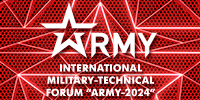The announcement of New START treaty suspension by the Russian President was vividly discussed. This political decision combined with Vladimir Putin’s order to ensure preparedness of the state for nuclear testing raised some fears of the end of nuclear arms control and of the destruction of an already faltering global security architecture.
Vladimir Putin announced that Russia has suspended its participation in the New START Treaty, at the same time he has stressed that the country does not withdraw from the treaty completely. According to him the inability to conduct mutual inspections due to aggravation of Russian-US relations became a cornerstone.
Shortly after the President’s speech was followed by the statements made by the Ministry of Defence and the Ministry of Foreign Affairs. They were of moderate character and both institutions stated that despite the decision to suspend the treaty Russia “will adhere to a responsible approach and continue to strictly comply with the quantitative restrictions on strategic offensive weapons provided for by it within the life cycle of the Treaty”. It was also said that Russia and the US will continue to exchange notifications on the IBM and SLBM launches.
The decision made by the President of Russia consequently caused the US reaction. President Biden called it “a big mistake”, but also said that he does not perceive this decision as a signal that Russia has an intention to use nuclear weapons. The US President was later joined by the Secretary of State Antony Blinken, calling the decision to suspend the treaty “deeply unfortunate and irresponsible”. However, the US openly announce their readiness to get back to negotiations on further reduction and limitation of strategic offensive arms.
The US were not the only, who expressed their opinion on the matter. The UN Secretary General António Guterres, was one of the first to comment Putin’s decision. He called both Russia and the United States to resume full implementation of the New START Treaty “without delay." NATO Secretary General Jens Stoltenberg also said he "regrets Russia's decision to suspend its participation in START" and "calls on Russia to reconsider and honor its commitments."
According to High Representative of the European Union for Foreign Affairs and Security Policy, Josep Borrell such measure “undermines the European security architecture and substantially set back arms control efforts, which is not in the interest of any of the States parties to New START, neither of any other country.” The Brussels characterized the New Start Treaty as “a crucial contribution to international and European security,” and called Russia to fulfil its obligations in accordance with the treaty, letting the inspectors visit Russia.
The need for Moscow to return to participation in the Treaty was also discussed in Paris, French Foreign Minister Catherine Colonna called on Russia to "show responsibility and cancel its statement (on the suspension of the treaty) as soon as possible." Also France is worried by the potential consequences of such decision, saying the it can lead to violation of the nuclear non-proliferation regime, which should be avoided by all means.
“We consider it important to preserve the existing tools for deterring strategic arms and non-proliferation of nuclear weapons, in particular the Treaty on the Reduction of Strategic Offensive Arms, which remains the cornerstone,” said the French Foreign Minister.
Boris Pistorius, German Minister of Defence called Putin's speech to the Federal Assembly "one of the usual methods" and said that Germany would continue to adhere to the set political course "without reacting to provocations or threats."
Concern about the decision to suspend participation in START was also expressed by the Minister of Foreign Affairs and Defense of Ireland, Micheál Martin. He noted that "The verifiable reduction of strategic nuclear arsenals in accordance with START contributes to security in Europe and the world, as well as to the implementation of the sixth article of the Non-Proliferation Treaty (NPT)." According to Martin, the decision of the President of Russia was the result of a general crisis in the nuclear non-proliferation regime.
“The deadlock that has prevailed in this Conference over 26 years is neither acceptable nor sustainable. The increasingly procedural nature of the Conference’s work does not reflect the urgent need to address the deteriorating international security environment through multilateral disarmament and arms control. Put simply, we must do better,” – said Martin.
Wang Wenbin, the official representative of China also commented the Russian decision. During the briefing he said that China “hopes that both of the parties [Russia and the US] will be able to solve their disagreement by means of a constructive dialogue and consultations to ensure implementation of the treaty without any obstacles.”
The New START treaty was signed in 2010 by Russian and the US presidents for a ten-year period and had a provision allowing to renew it on the same conditions for another five years. The treaty entered into force in 2011. In 2021 Vladimir Putin approved an agreement on the renewal of the treaty until February 5, 2026. According to the treaty the parties can possess no more than 1550 ready-to-use nuclear warheads, no more than 700 deployed ICBMs, BLPRs and strategic missile-carrying bombers, no more than 800 deployed and non-deployed launchers of ICBMs, SLBMs and heavy bombers.
Sources: The Diplomatic Service of the EU, CBS News, DW, DFA of Ireland








